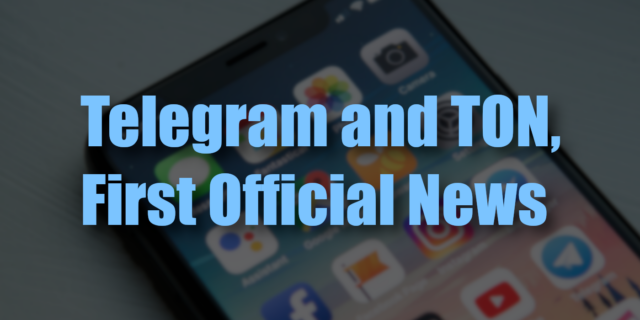Telegram has issued its first official documentation to the public regarding decentralized TON Blockchain, as well as the ‘Gram’ token, with a newly published section of its Terms of Service (TOS) which covers Grams Wallet.
It marks the first time that the company has made any association with the TON project to anyone apart from insiders or investors, and follows a lot of anticipation and speculation following its $1.7 billion+ ICO fundraising event in post-boom 2018.
“We have no control over the TON Blockchain and do not have the ability to facilitate any cancellation or modification requests to transactions you have submitted.”
Telegram, Terms of Service (Grams Wallet)
Customer-facing documentation, published by one of the first cryptocurrency projects might just be a groundbreaking event, and it could contribute to building the groundwork for future standards.
Among various generic stipulations that are common in terms of service documentation, the new section contains a valuable slice of information:
- All Gram token transactions on the Grams wallet will be validated and recorded onto the TON Blockchain ledger.
- Telegram has “no control” over the TON Blockchain network, because it is fully decentralized.
- Telegram cannot guarantee the validation and confirmation of transactions occurring on-chain, for the same reason as above.
- Any fees incurred for transactions on the network are not controlled by Telegram, nor is the company liable.
Bear in mind that the purpose of the ‘terms of service’ is to convey all the information that a customer legally must know – to alleviate Telegram of liability in the event of a misunderstanding.
As such it may read as negative – and we will have to wait to see how the company pitches the project when it launches its official marketing campaigns.

Headed by a social media giant with a huge amount of user-reach, TON is not the only such project to enter the crypto arena in the news at the moment.
Libra is a stable-coin like token but supported by a handful of FIAT currencies rather than just one, and is backed by a consortium of blue-chip organisations. It’s led by Facebook and has attracted the ire from regulators and critics alike, losing one of its 28 founding members (PayPal) earlier this week.
The team behind Kik ceased operations of its popular, eponymous messenger app recently also; citing the need to focus resources towards its Kin crypto and an ongoing lawsuit with the SEC.




